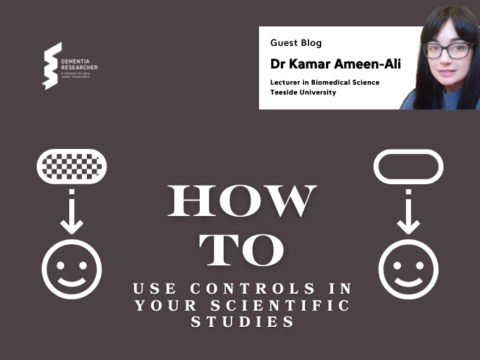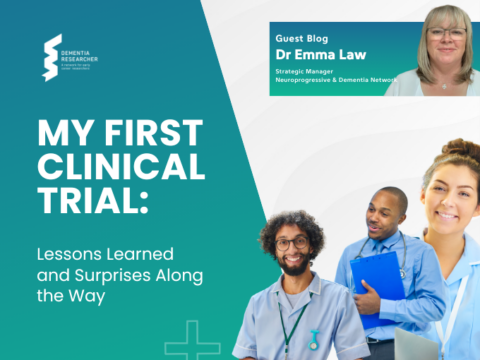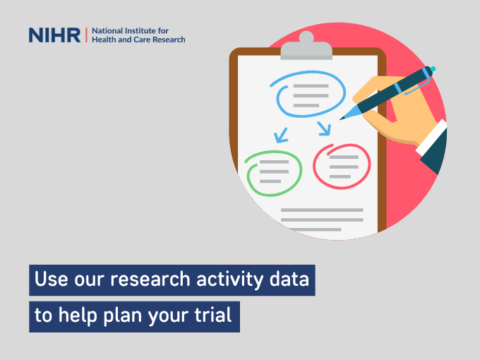Before I start, let’s establish some (essential!) background info about me: as I sit here, I have only worked full-time in clinical trials for nine months—nine months of learning, implementing, making mistakes, fixing them, experiencing fear at potentially deviating from protocol, feeling relief when I realise I haven’t, buffering thoughts, and nodding. Oh, and paperwork. So much paperwork. I’ve learnt a lot about clinical trials in this time and here, I share some of the things I wish I’d know before I started.
Firstly, I wish I’d known how un-clinical clinical trials would feel. Just in case you’re unfamiliar with the term clinical, in healthcare, clinical work is the patient-facing, person-centred work. Clinical trials, though still involving patients, are much more data-focused, and I’ll admit, I miss the patient-centred approach of my previous work. The dynamic with patients in research is different. I wish I’d had an awareness for how rewarding this, and other elements of clinical care that I hadn’t even acknowledged at the time, were.
Before moving into clinical trials, I worked as an assistant psychologist, involved in dementia diagnostics and some therapeutic work, and prior to this, I was an occupational therapy assistant on an older adult mental health ward. These roles were exceptional, largely because of the talented, knowledgeable, and encouraging people I worked with. I was given a lot of support and encouragement for supervised autonomy. I would plan, prep and check in before an appointment, then carry out, reflect, and give feedback on how it went — repeat. So even within these less independent roles, I was gaining invaluable experience in both understanding and working therapeutically in mental health. Elements of clinical work that I hadn’t truly been aware of at the time, such as problem-solving, decision-making, therapeutic relationship-building, are all less prominent in clinical research which is driven by process, rather than by the person. And I miss that. In fact, I wish I had known that these same elements can sometimes be at odds with what makes an exceptional researcher (in my current, very young opinion).

Studies show that developing a successful medicine costs $2.6 billion today, compared to $179 million in the 1970s.
Learning from some highly experienced researchers in my team, I’ve noticed similarities in their approaches: these are people who can recognise what is missing from a set of rigid yet essential rules and implement systems to ensure as many situations as possible are anticipated and accounted for with a standardised response. These are people who know how to follow the rules to the letter, again and again and again, with as little variability as possible. Quite the opposite of tailoring an approach to the individual (whether person or situation). And it’s hard to do this, over and over again, and to do it right each time, in exactly the same way. But this is what makes research reliable and valid.
Standardisation is essential, and the ability to execute it consistently and effectively is nothing short of impressive, in a way I’d never quite appreciated previously.
And finally, what I wish I had known, was how delayed gratification would be in clinical trials. It can be years before you find a solution to a problem, if in your lifetime, and even if you do find a new way to help, it then has to be implanted into practise which takes even longer. Often, it’s an unfortunate reality that it can be years before you see the positive impact of the work you’ve been involved in, making a difference in society. Additionally, the work can be monotonous (an unfortunate but necessary side effect of standardisation), meaning that, day to day, it’s sometimes hard to feel satisfied—especially compared to the immediate sense of gratification that often comes with therapeutic work.
However, let’s finish this off with something I didn’t know but really liked finding out, about working in clinical trials: I didn’t know I would receive so much external validation from others, when telling them what I do for a living. It’s odd—I’ve never had such interest in what I do, before. Especially as, in the day-to-day running of a study, it can get, well, difficult. Difficult to focus, to attend, to remember. The why can often be lost in all the aforementioned paperwork. Not just the reason why, but the importance of why. And that external validation has really, really helped in prompting, driving, and reminding me why. Because although I won’t necessarily see the outcome of what I do each day—keying data or conducting another MMSE that I won’t be able to interpret meaningfully—the external validation from others helps me feel proud of what I’m doing, even if the gratification gained from research is so egregiously delayed.
And in those moments, it’s really helpful to remember one of the last conversations I had in my previous role, with a patient who had recently received a young onset Alzheimer’s diagnosis. When I told them at our final appointment that I was moving into this role, their parting words were:
“Well, maybe you’ll be able to find something that can help me.”
And that gives me the push I need to make a cup of coffee and triple-check that those numbers have been keyed in correctly.
Because maybe I will.
I really, really hope so.

Marian Montanha
Author
Marian Montanha is a Clinical Studies Office in the NHS – Neuroprogressive and Dementia Network in Scotland. With a background in Psychology and a keen interest in Neuropsychology, Marian plays a vital role in clinical research, coordinating and managing clinical trials, ensuring smooth operations, and maintaining accurate records, while also promoting research and collaborating with clinical teams. Passionate about patient care, she is driven to help people maintain dignity, independence, and quality of life. Marian’s top tip for ECRs? “You don’t know what you don’t know”.

 Print This Post
Print This Post




